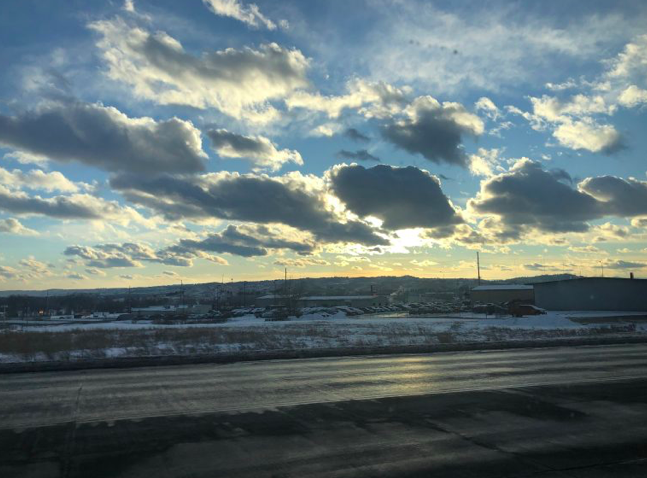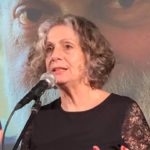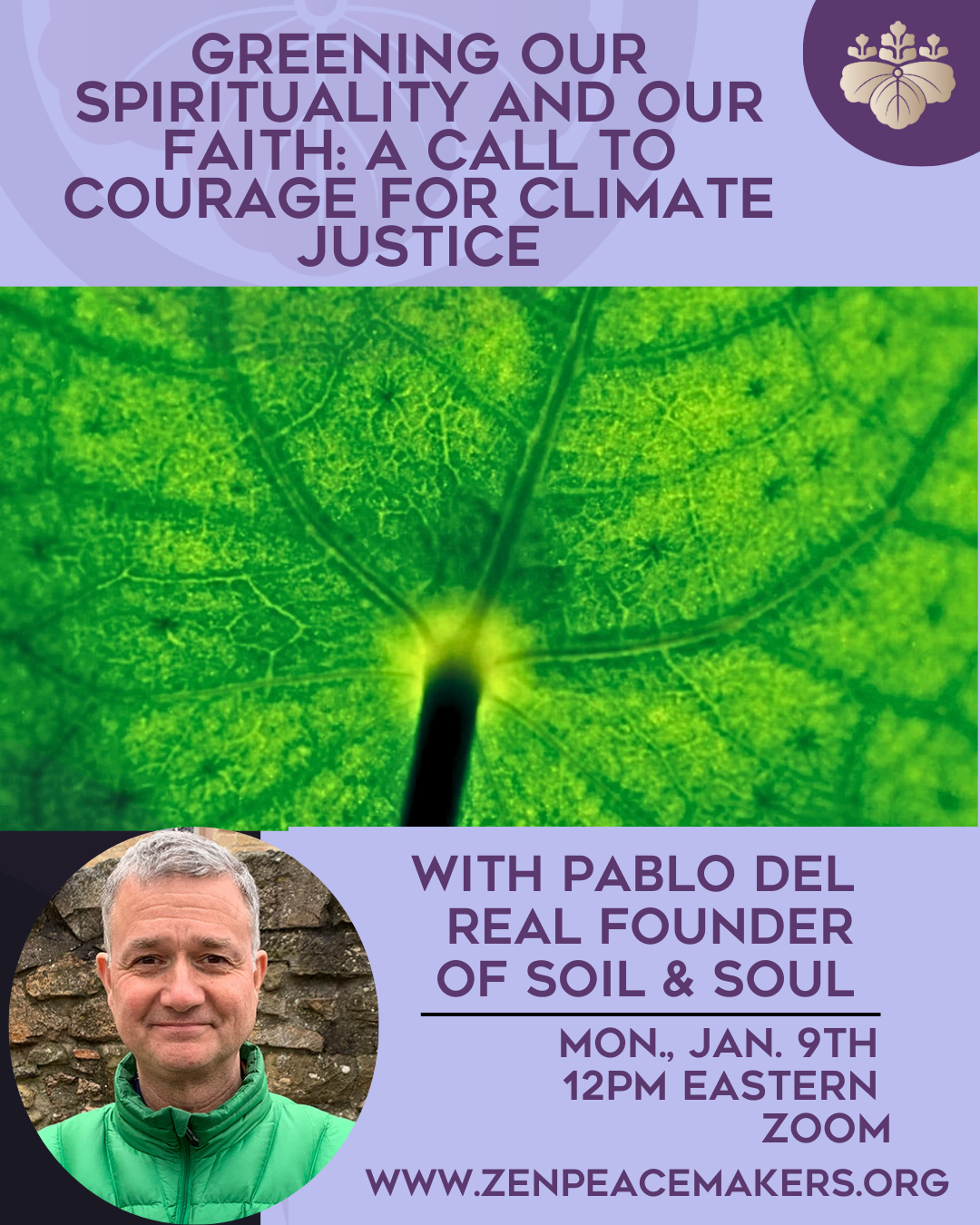RAPID CITY, SOUTH DAKOTA, USA. This writing, by Roshi Eve Myonen Marko, first appeared on her blog on February 10th, 2020. It has been reprinted here with her permission. The piece reflects on the most recent meeting with Native American Plunge Leader Manny & Renee Iron Hawk, sharing intimate, poignant dialogue exchanged in the meeting held over the weekend at in their Rapid City, South Dakota Quality Inn Hotel Room, where the meetings were held.
I sat in the Rapid City airport not knowing when I’d get home. The plane to Minneapolis was delayed, which meant that I would most probably miss the last flight to Hartford, which in turn meant that I’d spend the night somewhere in the Minneapolis airport and get home only early afternoon the next day.
Why do we always travel to South Dakota in the dead of winter, I wondered for the umpteenth time. I know the answer: To plan the summer’s bearing witness retreat with Lakota hosts. And yes, you can bet that it’ll be cold, there will be snow, planes will be delayed, I’ll drive home in a snowstorm, in short: it’ll be an adventure. I wouldn’t miss it for the world.
This year’s retreat will probably center on the Bighorn Medicine Wheel in Wyoming. It’ll take place on the anniversary of the Battle of Greasy Grass, sometimes referred to as Custer’s Last Stand, and there will be re-enactments of that battle nearby, but the big focus will be on prayer and meditation at the Medicine Wheel site. It’s premature to set out the details, these will be extensively scouted before we publicize them.
“We have to heal,” said Manny Iron Hawk sometime early evening on Saturday.
We were exhausted; I felt like my ears couldn’t take any more talk and discussion, and indeed skipped out on dinner later on. But Manny slapped the table with his hand and repeated: “We have to heal,” adding: “Not everybody is ready for that.”
He spoke of the many Lakota who choose to sit on the sidelines, not learning their language or their culture, staying betwixt and between. Manny and his wife Renee have begun a Lakota immersion school in Eagle Butte, Cheyenne River Reservation. The Lakota culture will survive if the Lakota language survives.
I’ll go further: We humans will survive if indigenous cultures, with their intimate connection with the earth, will survive. It’s in all our interest to make sure that the Lakota culture survives, and for that to happen the language has to survive. But not enough children go to their LOWI School, parents are afraid it will undermine assimilation with white culture.
I remembered our 2015 retreat, the first one with Lakota elders, when so many white people came and so few Lakota. I also thought of our 25 or so retreats at Auschwitz-Birkenau, where so many people have come from different parts of the world, the fewest being Jews from Israel. There were always reasons—We’re surrounded by Arab nations, we need to be strong—but the biggest of all was that so many don’t choose to heal.
It’s not easy to leave the role of victim and do the work of making peace with all aspects of your life, which in the large picture are all aspects of yourself. “I forgive, but I don’t forget,” Manny said.
Every day they encounter racism and discrimination on and outside the reservations. Two months ago we heard from Violet Catches of gang members running women in cars off the road on the reservation. Hundreds of women have been missing over the last few years, feared murdered. There are lots of reasons for anger, for withdrawal, for giving up.
“Don’t be angry, go deeper,” says Terry Tempest Williams. Stay with the source of the anger, the pain, the grief. “See it to the end, or its endlessness.” Don’t hide, don’t deny, don’t give up and leave it to future generations. We have to heal.
We didn’t go anywhere, we did what we do year after year, sit for long meetings at the Quality Inn in Rapid City and walk 15 steps to the nearest Millstone Restaurant for lunch and dinner. Not much chance to see the big sky of South Dakota, though in early morning I saw the full moon for some 10 minutes before it sank into the black clouds. Breakfast’s at the motel, and that’s when Manny’s, Renee’s and Violet Catches’ children and grandchildren join us before going into the motel’s indoors heated pool while we assemble around the tables and start our long meetings. At lunch time Manny, Renee, and Violet rush out to get food for their families before they join us at the Millstone.
“All of us have children who struggle with alcoholism,” a Lakota friend said to me that weekend. “All of us have at least one child who is in serious trouble.”
“Who are you?” Manny recounts that he asked his grandson. When the boy gave no amswer, Manny asked him: “Are you an Indian?”
The young boy said no.
A week later Manny asked him the same question again. This time the young boy said that his father was Indian.
“That’s better,” Manny said.
I arrived home today at 2:30 in the morning. Snow flakes slammed against the windowpanes like shards and Interstate 91 was a vast, white wasteland, no cars driving north but mine..
About the Author:
Roshi Eve Myonen Marko is a writer of fiction and nonfiction, head teacher at the Green River Zen Center in Massachusetts, and a Founding Teacher of the Zen Peacemaker Order.





